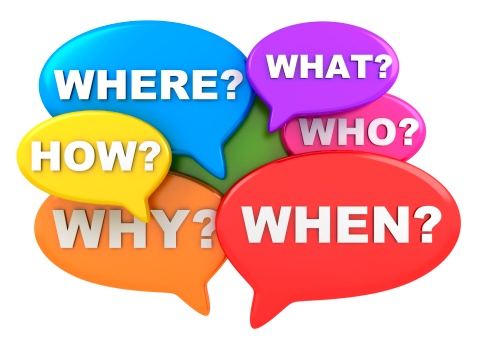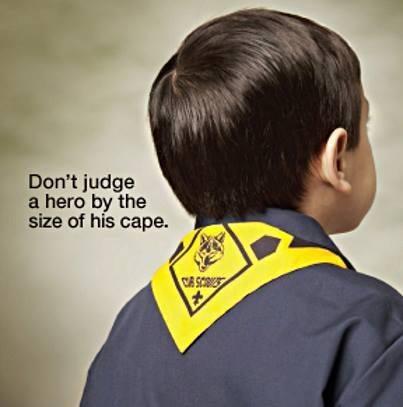Cub Scout Purposes – Character Development
In a continuing series we are taking a look at some of the reasons WHY Cub Scouting is important and relevant as well as HOW we achieve those purposes. This week’s article will talk about Character Development.
| 1. Character Development | 6. Respectful Relationships |
| 2. Spiritual Growth | 7. Personal Achievement |
| 3. Good Citizenship | 8. Friendly Service |
| 4. Sportsmanship and Fitness | 9. Fun and Adventure |
| 5. Family Understanding | 10. Preparation for Boy Scouts |
Character Development is one of the Purposes of Cub Scouting. Character development isn’t just one of the purposes of Cub Scouting, it’s also one of the Aims of Scouting—The big 3—Character, Citizenship and Fitness. And it’s listed as number one in the Cub Scout purposes. I’m not sure it they are listed in order of importance but the fact that it’s a purpose and an aim tells me that it’s a pretty major part of Scouting. Since its origin, the Scouting program has been an educational experience concerned with values. In 1910, the first activities for Scouts were designed to build character, physical fitness, practical skills, and service. These elements were part of the original Cub Scout program and continue to be part of Cub Scouting today.
What is Character? When I googled “What is Character” the very first definition that came up defined it as “The mental and moral qualities distinctive to an individual.” The next definition I found was “A pattern of behavior, thoughts and feelings based on universal principles, moral strength, and integrity” and still another was “The combination of mental characteristics and behavior that distinguishes a person or group.” And since we are talking about this in connection with Cub Scouting, here is what it says about Character onScouting.org: “Character can be defined as the collection of core values by an individual that leads to moral commitment and action.” So what are those “core values”? Those listed in the Scout Law of course: Trustworthy, Loyal, Helpful, Friendly, Courteous, Kind, Obedient, Cheerful, Thrifty, Brave, Clean and Reverent. Those are the values that we want boys to have. Those are the character traits that we are trying to build.

What parent doesn’t want those attributes for their children? Whether a mother of boys or a mother of girls its obvious to see that society as a whole would be much better if we all lived by the Scout Law.
How do we do it? In the Cub Scout program, the particular part for teaching character development used to be called “Ethics in Action” then it became “Character Connections”. Both of those were specific to the previous “Cub Scouting’s 12 Core Values” which were a bit different but quite similar to the 12 points of the Scout Law. In the new program, there are Character Compass icons in the boys’ handbooks as well as reminders in leaders’ manuals to reflect on one of the values listed in the Scout Law. In the Cub Scout Leader Book it tells leaders to “Take every opportunity to point out how an activity or service project your Cub Scouts are doing connects with the Cub Scout ideals (Scout Oath, Law and Motto) Again from the national website it says “Character development should extend into every aspect of a boy’s life. Character development should also extend into every aspect of Cub Scouting. Cub Scout leaders should strive to use the 12 points of the Scout Law throughout all elements of the program—service projects, ceremonies, games, skits, songs, crafts, and all the other activities enjoyed at den and pack meetings. Character development should challenge Cub Scouts to experience core values in six general areas: God, world, country, community, family, and self.”
Are we succeeding? According to a recent independent study done by Tufts University the answer is a resounding YES! Scouting builds character! Scouting was put to the test over the course of three years, when a research team from Tufts University worked with theBoy Scouts of America’s Cradle of Liberty Council to measure the character attributes of both Scouts and non-Scouts — all with a goal of better understanding the character development of youth as it was happening. The project, surveyed nearly 1,800 Cub Scouts and nearly 400 non-Scouts under age 12 using both interviews and survey data. In the beginning, there were no significant differences in character attributes between the two groups. By the end, however, the differences were striking in several areas: hopefulness, helpfulness, obedience, cheerfulness, kindness, trustworthiness. (notice some of those scout law values in there)

And of course they also found that those that regularly attend, are engaged and involved in packs with engaged programs gained even more. That’s just common sense right? 

Of course for those of us involved in scouting, part of the reason we are involved is because we believe and have seen the influence for good on the boys. (And on us leaders too). So for those of you who are true Scouters none of this will come as any surprise but for those who are sitting on the fence or are opposed to Scouting, there is proof that Scouting really does help build character in boys. The program delivers what it aims to deliver. You can read more about the Tufts study here. And here. And here too.







